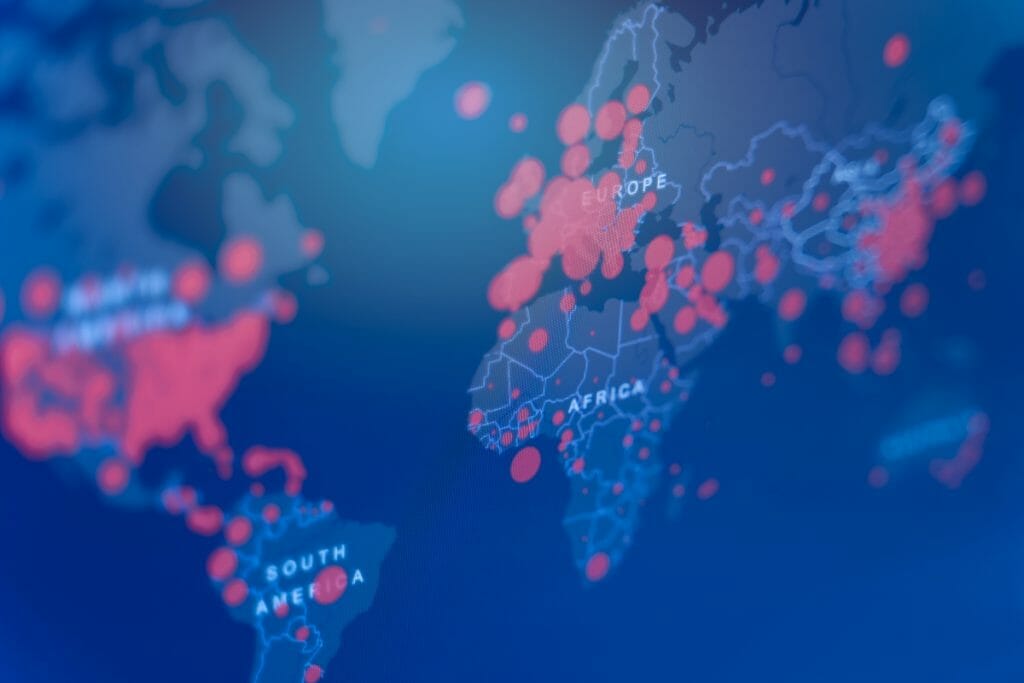Demand for the monkeypox virus (MPV) vaccine remains extremely high, especially in LGBTQ-inclusive areas including New York and Southern California.
The Department of Health and Human Services announced on July 19th that it had distributed more than 191,000 doses of the JYNNEOS vaccine across the U.S. over the last two months.
An additional 2.5 million doses is headed to the U.S., HHS announced last week.
HHS is also keeping Americans apprised of distributions via this website, where you can track JYNNEOS deliveries per state. It is updated every Wednesday.
As the world still reels from one pandemic, we may have learned a thing or two as cases of the monkeypox virus (MPV) begin to pop up all over the world – including in the U.S. Luckily, MPV isn’t like COVID-19 – MPV has been treated and controlled before. MPV has been around for years, and the last U.S. outbreak occurred in 2003, giving public health leaders a roadmap and resources for how to combat it.
Even with vaccines and treatment readily available, the rise in monkeypox cases has also paved way for feelings of anxiety and misleading information about MPV in news media and on social media. The virus itself is spreading, with the CDC recording just over 2,000 U.S. cases in mid-July and nearly 15,000 worldwide. The first U.S. case was reported in mid-May.
Data from the initial outbreak in Europe found that gay and bisexual men made up a disproportionate number of MPV cases. However, limited testing capacity has made it difficult to accurately measure cases and spread here at home. Still, the initial headlines in May that conflated gay and bisexual men to MPV triggered traumatic flashbacks for many in the LGBTQ community that were reminiscentof the AIDS era.
“News of additional MPV [monkeypox virus] vaccine doses becoming available is welcome and urgently needed,” said DaShawn Usher, GLAAD’s Director, Communities of Color. “As we saw with HIV, COVID-19, and now MPV, discrimination, disinformation, racism and systemic breakdowns in the healthcare system continue to challenge LGBTQ Americans’ health as well as public health and safety, especially for LGBTQ people of color. All people are susceptible to MPV but it showed up early in LGBTQ communities, resulting in additional stigma for us. We must keep our community safe and informed.”
In an interview with Judy Woodruff on PBS Newshour, Dr. Ashish Jha spoke to the criticism about the administration’s response to the first cases of monkeypox in the U.S.: “We are one of the few countries that built up a stockpile of monkeypox vaccines,” he said. “We are working with the communities, especially the gay & lesbian community where this is predominant.”
and on criticism the administration isn’t doing enough about monkey pox, Dr Ashish Jha says “we are one of the few countries that built up a stockpile of monkey pox vaccines..& we are working with the communities, especially the gay & lesbian community where this is predominant”
— Judy Woodruff (@JudyWoodruff) July 7, 2022
At a White House briefing on July 14th, public health leaders from the White House, CDC and advocates including GLAAD discussed MPV facts to share with medical providers and all communities. Attendees included Dr. Ashish Jha, White House COVID czar, Harold Phillips, National AIDS Policy Director; Dr. Demetre Daskalakis, Director of the CDC’s Division of HIV/AIDS Prevention; John Brooks, CDC epidemiologist; along with DaShawn Usher, Director, Communities of Color at GLAAD and otherLGBTQ advocates shared information about MPV and the MPV vaccine.
People can help determine if they are eligible for a vaccine, including whether a person has had:
- Close physical contact with someone who has been diagnosed with MPV
- Been in venues where MPV was known to have spread
Dr. Daskalakis unpacked five things you need to know about the monkeypox virus in a video released by the CDC:
- Monkeypox is a rare disease caused by MPV
- MPV has impacted the LGBTQ community, but it is a virus that could be transmitted to anyone. The virus is transmitted via skin-to-skin contact with an infected individual, or contact with contaminated clothes, linen or surfaces. As Dr. Daskalakis reiterated: you cannot catch monkeypox by just walking by someone in a grocery store.
- Monkeypox symptoms include flu-like fever, cough, aches, lesions or rash.
- The risk for monkeypox is currently low.
- If you experience MPV symptoms immediately go to a healthcare provider for an evaluation and treatment and avoid close contact with others. This includes kissing, sex and other intimate contact.
Demand for vaccinations in New York City and other areas has far exceeded current capacity which led local elected officials to call for more vaccines, testing, and treatment. New York Governor Kathy Hochul announced that New Yorkers can sign up for text messages to receive alerts about cases, symptoms, spread, and resources for testing and vaccination—by texting “MONKEYPOX” to 81336 or “MONKEYPOXESP” for texts in Spanish. New York has so far seen the highest number of cases in the U.S. outbreak.
Click here to read GLAAD’s fact sheet on MPV, which includes recommendations for the news media on accurate coverage of the outbreak and how to avoid stigmatizing and misinformation.













